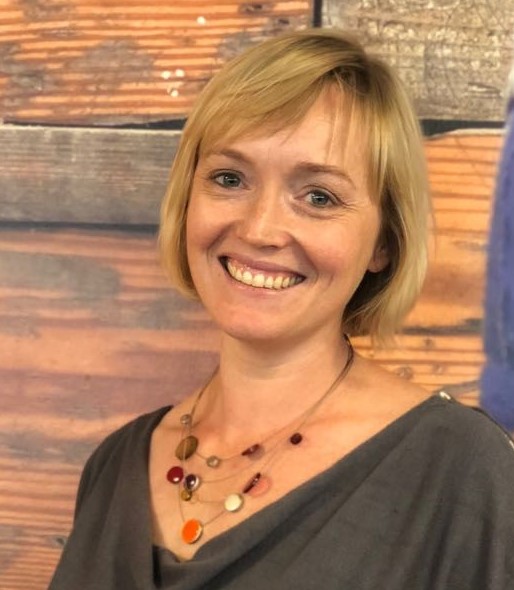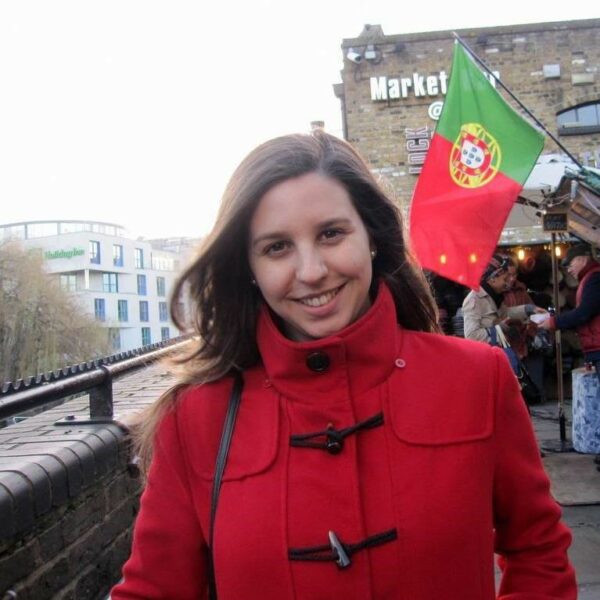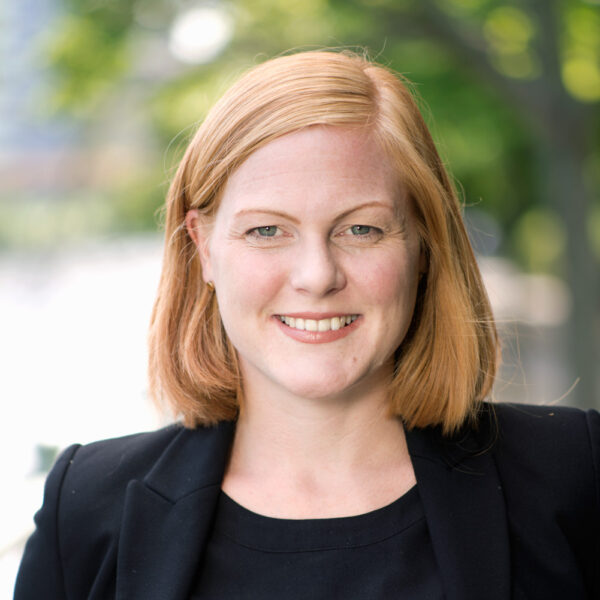This blog first appeared on the Balkan Civil Society Development Network website
Shrinking Civic Space and the Crisis of CSO Legitimacy
Recent times have seen an alarming rise of government measures that restrict and close space for the civil society to exercise core civic freedoms, to advance citizens’ rights and to hold governments accountable. Increasingly, citizens and their organizations suffer from the suppression of their rights to free speech, from obstructions to run their programmes to threats to activists’ lives. The CIVICUS State of Civil Society Report 2018 reports “serious systemic problems with civic space (the space for civil society) in 109 countries, the majority. In 2017, attacks on civic space came even in countries where they were rarely seen before”.[1] This means that only four percent of the world’s population lives in countries where civic space is considered fully open. In its report from the previous year, CIVICUS already concluded “that the restriction of civic space has become the norm rather than exception. It should now be considered a global emergency”.[2]
The most obvious and visible restrictions are often those by strong-armed governments, repressing legitimate protest, cutting down free speech and limiting access to the internet. Equally chilling, however, are the instances when governments use tactics within the legal realm to regulate Civil Society Organisations (CSOs) and their funding mechanisms. Many government bodies have started to use a narrative that delegitimizes or even demonizes CSOs, framing them as foreign agents that aim to undermine national sovereignty. Under the curtain of transparency and accountability, government regulations argue for tighter regulation, requiring from foreign-funded organizations to seek approval from official institutions, demanding income and asset declarations of CSO leaders, and raising the bar for reporting obligations on internal accountability and governance. While there are existing gaps in CSO accountability and transparency practices worldwide that need to be acknowledged, these imposed regulations and their affiliated restrictions are often “harassing in nature and not guided by a legitimate interest of transparency or accountability”.[3] In many cases, governments further intrumentalise these arguments to picture CSOs as a privileged elite, creating a protracted debate that distracts CSOs from their initial advocacy, divides their unity as a sector and creates mistrust in them as legitimate representatives of their constituencies.[4]
Many communities under pressure, CSOs, and activists, develop coordinated and strategic responses to these clampdowns, share resistance tools and tactics and are able to show solidarity in the short-term when organizations are under direct attack.[5] Nevertheless, the declining confidence in CSOs by the people they profess to serve does not only stem from the restrictive or manipulative government policies but is also due to the way CSOs most commonly practice accountability.
The digital revolution of recent years has contributed to transforming our culture of communication and global interaction, which not only makes the information more easily accessible but it also offers significantly wider range of opportunities for people to organize themselves to fight for common causes. We currently witness an unprecedented age when people rightfully demand active engagement in an organizations so that they can co-create outcomes with public institutions just like with CSOs.
Traditional and rather static forms of CSOs have not always caught up with these increasing demands for participation. A BOND survey on effectiveness[6], the Aid Watch Palestine research[7], and the What Went Wrong Foundation[8], all show that stakeholder involvement in CSO decision-making remains limited. Key barriers include a culture that, whilst philosophically appearing receptive to stakeholder input, is often wedded to linear or inflexible design, review, and decision-making processes in practice. Furthermore, CSOs often lack resources, skills and technology to invest in implementing the desired participative and responsive approaches, thus missing out on the opportunity to enhance trust in their relationships with their beneficiaries.
Yet, not only is this missing culture of accountability to all stakeholders, in particular to local communities and people of the grassroots, a programmatic or technical issue, it has also a greatly broader structural dimension that we have to address. We need to acknowledge that the credibility of our sector is under question and take requests from stakeholders seriously. Unless we face our skeptics and ourselves, with an honest and self-critical debate about our modus operandi and our guiding principles and commitments, we, as civil society sector, face the risk of plunging into an unprecedented legitimacy crisis.
Assessing the case of aid officials sexually exploiting victims of humanitarian disasters, Anabel Cruz, the Founder Director of the Communication and Development Institute (ICD) of Uruguay and CIVICUS Board Chair, calls out “the clear culture of abuse of power in environments where there is a vulnerability and in relationships that already imply an imbalance of power.” She suggests that it is this imbalance which we have to acknowledge and address, by empowering local communities to hold CSOs to account and by forging stronger relationships to our roots that we can hopefully prevent such occurrences in the future and rebuild public trust in CSOs.[9]
Without people’s trust and recognition of CSOs as the legitimate representative of their voices, our fightback against repression and restriction of civic space will be ineffective. Since national governments and other powerful actors quickly learn from each other how to restrict civic space, we must, instead, also realize that the improvement of our own accountability is a critical part of the equation. Should we want to be successful in defending and reclaiming the civic space, then our approach to accountability needs to be dynamic, with the central spot being given to the dialogue and the interactive relationships with all our stakeholders so that it becomes embedded in the local constituencies’ needs.
Dynamic CSO Accountability and the Use of Feedback
Nearly 15 years ago, Kumi Naidoo already challenged CSOs to acknowledge that their accountability had to work in many different directions: “upward to donors and regulators downwards to beneficiaries, outwards to peers, members and partners, and inward accountability to staff, board, and volunteers”.[10] So why do we still struggle to live up to this multi-dimensional perception of accountability, and what can we do to step up our game?
In the eyes of donors and governments, CSO accountability has for a long time been a rather static exercise; they demand from CSOs to provide a sound accounting of the funds management, to abide by the laws and to comply with the funding and registration requirements. But there have been very few demands to transfer the right to accountability from exclusively those that have authority over an organization (e.g. donors) to anyone that has been affected by the organization’s work.
Such a shift to a more dynamic understanding of accountability is a process that takes time because it needs an open organizational culture for learning and adaptability, flexible decision- making structures and mechanisms that put people’s participation and the systematic use of feedback at the core of the CSO. Here the participation cannot be viewed as a one-way street in which the stakeholders provide feedback to CSOs which, in return, discuss these inputs among themselves in their backrooms. Instead, it requires from the organizations and establishment of a more comprehensive feedback systems, with tools and processes that allow them to engage with the stakeholders properly, to respond to their input, and to co-find solutions with them.
Feedback is the information collected deliberately from stakeholders about their perspectives on a CSO’s policies, programs, and operations that affect them, including on the impact an organization achieves. This information must come from people and focus on what people think, feel and aspire instead of simply collecting information about the people. The feedback is an important evidence for CSOs – possibly the most important piece of evidence – about how to learn and how to improve their performance. It can be collected and analyzed in many formal and informal ways; obviously, it is the most useful when, as a result of this feedback, changes are made. Evidence collected by FeedbackLabs[11] suggests that using constituent feedback results can be linked to better outcomes in politics, education, health and community infrastructure.
Increased accountability and increased effectiveness are mutually reinforcing- when we listen to the people we are working with and for, it is more likely that they will support us and engage with us. An effective feedback systems (listening, creating space for open dialogue, co-creating solutions, building partnerships based on mutually reinforcing goals, making changes in alignment with views of the people you seek to serve), is, therefore, a crucial process to leverage the full potential of people’s skills, resources and capacities towards our shared cause and to achieve a better outcome of accountability.
If we truly want to redress the power imbalances between the communities we work for and ourselves as CSOs and regain trust and legitimacy that is currently lost, not only do we have to give these stakeholders a voice, but we must also provide effective systems and tools that will enable them to hold us accountable.
The Global Standard for CSO Accountability as a tool for Dynamic Accountability
The Global Standard for CSO Accountability, a self-regulating reference standard, is such a tool through which CSOs can demonstrate to stakeholders what they stand for and how they define the good practice of accountability. Stakeholders, in turn, can refer to the Global Standard, assess CSOs practices, and demand of them to implement it and to live up to the 12 commitments it contains.[12] By encompassing Dynamic Accountability, a term originally coined by the youth-led movement Restless Development, the Global Standard is an important tool for CSOs to benchmark their own tools and practices in regard to effective stakeholder participation and learn how to enhance and improve them.
The Global Standard for CSO Accountability was developed through a partnership of nine CSO network organizations championing accountability practices among CSOs at regional or sub-regional levels in Africa, Asia, Australia, Europe, North America, Latin America and the Caribbean, supported by the Swedish International Development Cooperation Agency (Sida). It was developed in a bottom-up process through mutual learning between the nine partners and intensive consultation of thousands of their member organizations. The final framework was agreed in April 2017 in New Delhi and officially launched during the International Civil Society Week in December 2017 in Fiji.
Being a reference for reflection, discussion, and change, it can be adapted to different cultural, geographical and organizational needs. It provides a powerful starting point to build participative work relationships in and among CSOs worldwide. Different organizations can engage with the Global Standard in various forms. It can be the starting point for a debate either internally or with partners, beneficiaries, governments and donors about the desired and needed practices for accountability and effectiveness. Using the Global Standard as a benchmark can help CSOs and their stakeholders to critically assess their structures, practices, instruments and organizational culture, and to identify concrete steps to address some of their weak spots. Since it provides an important framework for much needed self-reflection, it is a powerful tool for learning and improvement.
Each CSO can decide on which aspects of the Global Standard are the most beneficial to itself and to its members, and at which moment in time. Being a reference for reflection, discussion, and change, it can be adapted to different cultural, geographical and organizational needs.
With the aim to improve their existing codes and tools, the project partners collectively built the Global standard upon their already existing accountability instruments and took into account the important achievements already made by other global initiatives, in particular, the Istanbul Principles and the Core Humanitarian Standard. By capturing these different frameworks and principles in one reference standard and developing them further to facilitate their practical implementation, the Global Standard points to the important role that Accountability Initiatives can play in securing civil rights. It suggests a wide range of practical indicators that different types of organizations can use to evidence accountability impacts to the broader public. Having comprehensive standards and safeguards in place that are implemented and enforced by the CSOs on the national and regional level, is a powerful and self-empowering approach to improve CSO accountability practices, to include stakeholders and to demonstrate evidence of impacts, which will increase trust with people, partners, supporters, and donors.
Being an initiative born out of the sector, it can show one of civil society’s efforts to contribute to a more enabling environment. The different global initiatives are currently exploring the avenues for their future cooperation, so they can reinforce a common narrative civil society sector, and present to the public what CSOs are committed to doing, how they want to work and what impacts they are achieving, in a suitable and realistic form.
A growing number of organizations engages with the Global Standard on national, regional and global levels, which demonstrates that the promotion of Dynamic Accountability resonates with the wider CSO-community. By endorsing the Global Standard, organizations make a public promise to work individually and together towards the fulfillment of its 12 Commitments and thus advocating for a more enabling environment for civil society.
Nevertheless, Dynamic accountability is a process over time that needs to develop gradually. With this in mind, the Global Standard itself must be dynamic and further developed to include contemporary challenges.
What We Need to Do Next
The Global Standard is a tool that, if institutionalized by many CSOs, can serve as a starting point for a global community of practice that explores the possibilities of Dynamic Accountability together. This joint community has to build a strong and united voice to solve contemporary problems around CSO transparency and accountability as well as standards and reporting. This includes the following issues:
1. Disclosing Information as a Form of Protection
We need to discuss the issue of the potential vulnerability which intimidates the CSOs in case they become more transparent. To what extent shall we disclose the information without endangering the protection of our primary constituencies or the people we work with? The safety of the people we work with and those we work for is of paramount importance; we need to make sure that they can make informed decisions about the extent to which the CSOs can disclose their data. This is a highly sensitive issue which needs to be considered by those parties which demand greater transparency from the CSOs.
2. Donors’ Acceptance of Dynamic Accountability
Many donors encourage the civil society partners to be more accountable to them than to their primary constituencies. This creates unhealthy dependencies and discourages inclusiveness and accountability practices with the civil actors. This could be considered “unhealthy” as it indirectly contributes to the narrative of foreign interests and the problem of shrinking civic space. Marija J. Stephan suggests that “congressional reporting requirements for civil society funding should incentivize flexible programming and monitoring and evaluation approaches that ensure accountability while allowing local partners to lead and assume ownership”.[13]
3. Donors’ Acceptance for Failures and Learning Processes
In her research interviews with senior management of various CSOs, Angela Crack recognizes the existence of a clear pressure to demonstrate value for money and very low tolerance for organizations that make mistakes. The recent scandals have not just taught us that we need to rethink our own ethical, transparency and accountability practices, but they have also urged the donors to rethink about how they might have indirectly contributed to a practice of focusing on making the reports as positive as possible, rather than focusing on learning. We need to start a conversation so that CSOs and donors can work together and give room for mistakes and create a culture of honest reflection and learning from these without facing immediate threats to the nature of their work.[14]
4. Interoperability between Standards and Donor Requirements
Many organizations are faced with the problem of the administrative workload due to different requirements by the state, the donors as well as the international, national and internal standards. We need to work together to develop a system that will facilitate the process for the CSOs to cope with those various requirements without losing the emphasis of organizational, cultural and thematic context as well as the ownership of the codes they impose on themselves. Therefore, we need to explore and have a clear and joint understanding of how different reporting requirements and standards complement each other.
5. Cooperate Better with CSOs and Develop the Common Narrative.
In order to measure the great contribution of the CSOs in the achievement of SDGs[15] and the creation of a more empowering environment, we need to speak with one voice. We need to be clear about how we work together and how we complement each other so as to address these immense challenges that the world faces today.
These challenges, clearly, cannot be solved by a single organization or network, but should be seen, instead as an agenda that needs to unite the voices of different kind of actors. The Global Standard aims to unite these voices in working together to address these issues and create more effectiveness for all. If thousands of CSOs practice the dynamic approach to accountability and if the donors accept it, it has the potential of transforming the civil society sector into a highly participative and responsive actor, generating trust on the ground, leveraging stakeholder contributions for greater impact and contributing to a more enabling environment for CSOs. This, in the long run, can help organizations to create a strong case for their legitimacy and thus be more resilient against attempts to shrink the space in which they operate.











